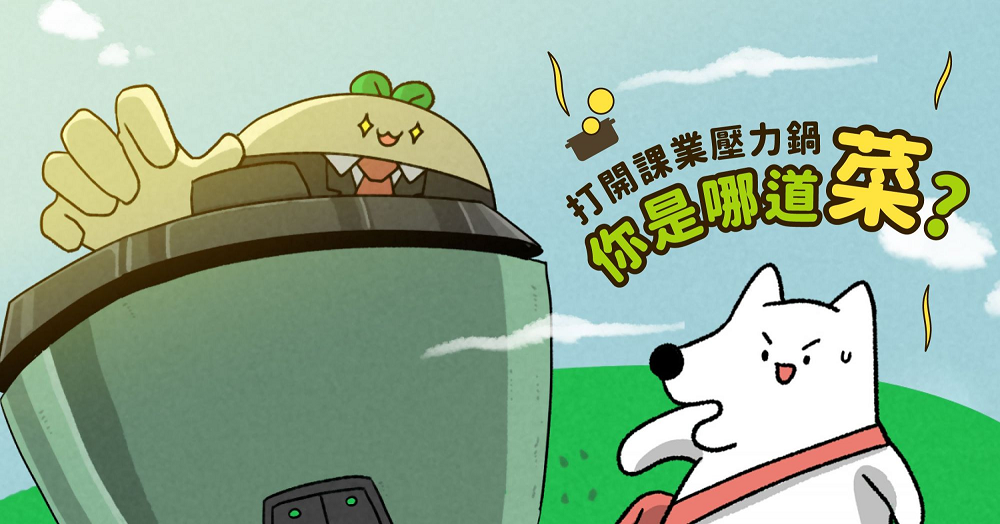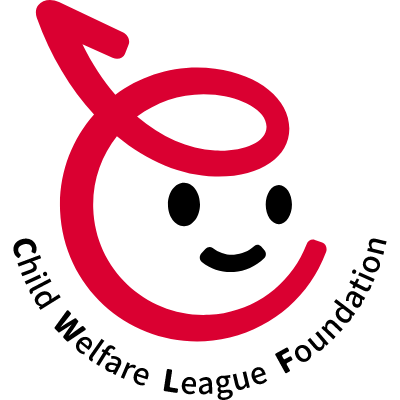
Students Facing Burnout and Feeling Mixed-up: How to Escape the Pressure Cooker of Academic Stress?
Press Conference on the 2023 Child and Adolescent Learning Conditions in Taiwan Survey Report
Despite the elimination of morning self-learning sessions in Taiwanese high schools since September 2022, the average daily in-school hours still range from 7.5 to 8.5, exceeding those of South Korea, Japan, and Western countries. However, this is not sufficient, as students are required to engage in supplementary tutoring beyond regular classes. According to the published by Child Welfare League Foundation(CWLF), 59.8% of children and adolescents participate in after-school tutoring, with urban students exceeding 72.4%. Among them, nearly one-fourth (24.7%) attend tutoring almost every day (five days or more per week), and more than 63.8% stay in cram schools until 9:00 pm, with 23.1% staying until after 10:00 pm. If we add more than 2 hours of homework and self-study time at home, the total daily learning time for children and adolescents often exceeds 10 hours, surpassing the working hours of many adults. It's no wonder that getting a full 8 hours of sleep has become an impossible task for high school students. Over 93% of them sleep less than 8 hours, and 37% get only 5 to 6 hours of sleep, not to mention the limited time for exercise and rest, with less than 1 hour per week. In addition to these challenges, the academic stress faced by Taiwanese high school students also comes from numerous exams, with over half of the students taking exams (including those from cram schools) for more than four days a week (52.1%). Among them, 15% of students have exams for six days or more. The culture of 'studying for the sake of exam results' has become deeply ingrained. With the prolonged high academic pressure and the lack of sufficient sleep or rest, it is not surprising that nearly 60% of high school students are experiencing learning fatigue. This not only results in a lack of interest in academics (30.6%) but also leads to nearly one-fourth of students having experienced self-harm or suicidal thoughts due to overwhelming academic pressure.
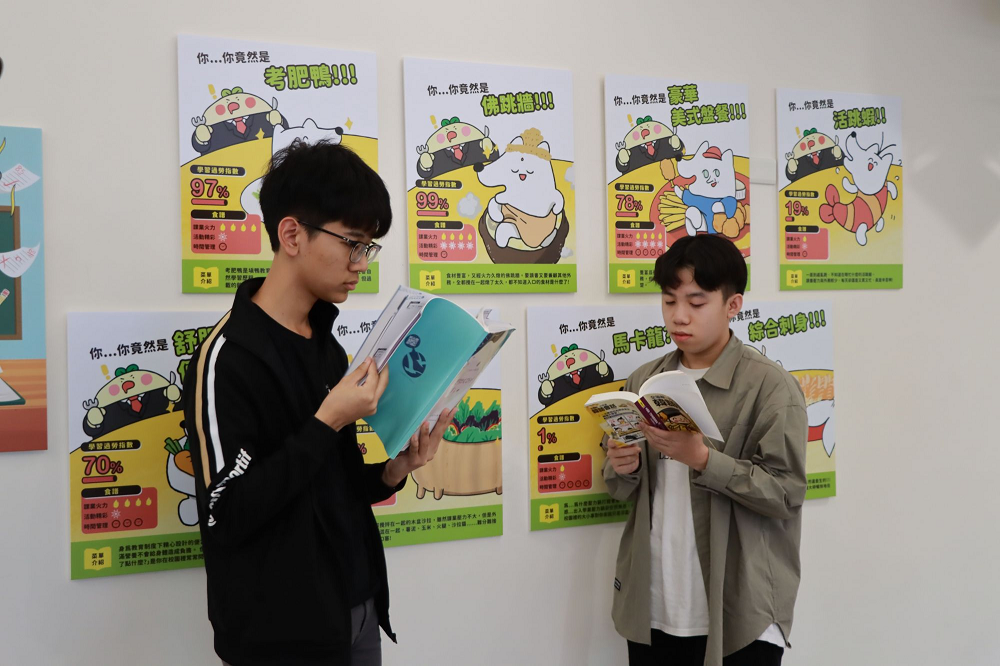
The purpose of this press conference, as explained by Director Huang Yunxuan of the Organizational Development Department of CWLF, is to discuss the findings of the survey. According to last year's mental health survey conducted by CWLF, the top two sources of stress for modern high school students are schoolwork (76.9%) and future prospects (67.3%). This has been surprising, considering that the 2019 curriculum (108 curriculum) aimed to provide students with more learning flexibility, fostering adaptive development, cultivating self-interests and expertise, emphasizing career exploration, and competency skills. The curriculum aimed to move away from defining students' learning outcomes solely based on written test scores. However, after more than four years since its implementation, the predominant source of stress affecting the mental health of children and adolescents remains academic pressure. The question arises: Has there been an issue in the learning environment of junior and senior high schools? What is the primary cause of their learning fatigue? What can the adult world do to enhance their motivation to learn? The survey, which collected a total of 1,802 valid responses from junior and senior high school students across Taiwan, aims to provide insights into the current learning conditions and fatigue levels under the 108 curriculum.
Heavy academic pressure, low learning motivation, and the emergence of self-harming thoughts - nearly 60% of students are experiencing learning fatigue.
In the survey, it was found that nearly 38.9% of students feel completely exhausted after finishing a day of classes. Over 31.1% experience significant emotional fatigue due to academic workload, and 26.8% of students find attending classes and studying to be a heavy burden. Despite investing considerable time and effort into their studies, students seem to lack a clear sense of purpose. About 30.6% of students are losing interest in their studies, and more than a quarter (25.6%) believe that studying so much now is essentially useless for their future. The intention of the 108 curriculum is to emphasize the integration and application of knowledge in real-life situations, encouraging students to actively seek joy in learning. However, over a quarter of students still find their studies boring, lose curiosity, and believe that academic pursuits have no relevance to their future.
The exhaustion from the lack of motivation in learning has also led to physical and mental issues among numerous students. The survey reveals that in the past two months, 15% of students have experienced anxiety-related insomnia or poor sleep due to academic pressure. Additionally, 13.8% of students reported experiencing headaches or stomachaches, and 10.3% indicated changes in their appetite, either loss of appetite or binge eating. Most distressingly, close to a quarter of students (24.8%) have had thoughts of self-harm or suicide due to excessive academic pressure. The mental health condition of junior high school students has significantly deteriorated. Compared to 2017, the percentage of students who have had thoughts of self-harm or suicide due to academic pressure has increased from 21.3% to 28.1%.
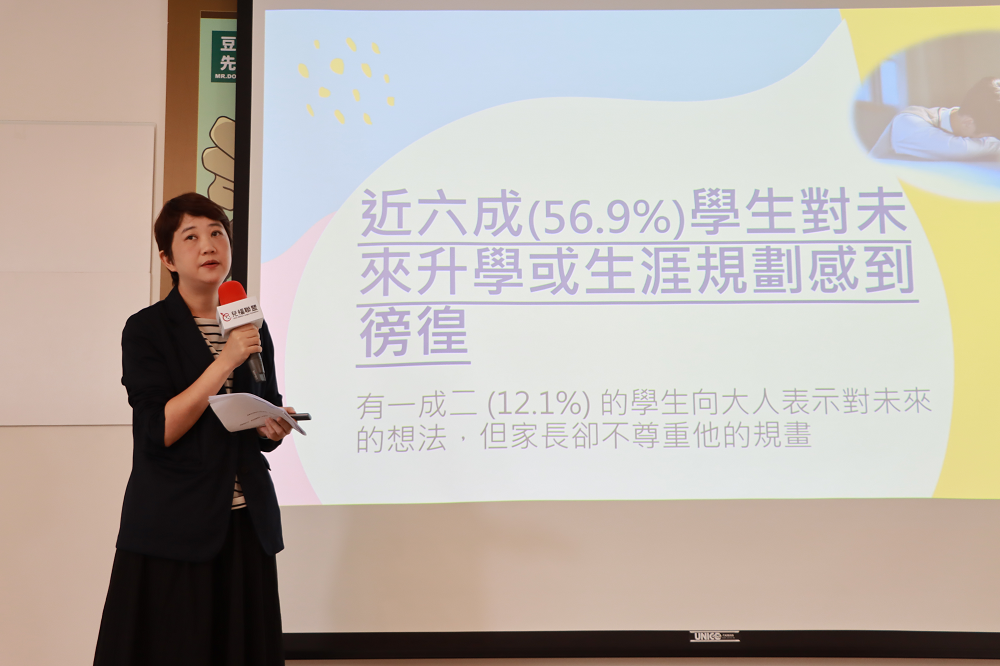
One-fourth of students attend cram schools almost every day, and over 70% face the pressure of taking exams at least four times in a single day.
Excessive cramming and frequent exams continue to persist, contributing to learning fatigue stemming from rote education practices.
Ninety percent sleep less than 8 hours, spend 2.5 hours daily on 3C products after classes, and engage in outdoor activities for only one hour per week.
Inadequate sleep and insufficient physical activity contribute to increased fatigue among students.
Having dark circles under their eyes due to insufficient sleep seems to be a common daily experience for Taiwanese students. The survey reveals that over 90% of junior and senior high school students sleep less than 8 hours, with 37% getting only 5-6 hours of sleep, and 12.6% getting less than 5 hours of sleep. Although the sleep conditions for junior high school students may not seem as severe as those of high school students, a noticeable deterioration is evident when compared to 2017. The percentage of junior high school students getting less than 5 hours of sleep has increased from 4.5% in 2017 to 9%, and those getting 5-6 hours of sleep has risen from 27% in 2017 to 30.1%. According to the National Sleep Foundation in the United States, children aged 6 to 13 should sleep 9-11 hours daily, and teenagers aged 14 to 17 should sleep 8-10 hours daily. Based on these standards, the sleep duration of Taiwanese students falls far short. Sacrificing sleep is not the only compromise students make for academic success; the survey found that junior and senior high school students in Taiwan spend an average of 2.5 hours on 3C products after classes each day. Additionally, the median outdoor exercise time per week is only 1 hour, indicating a concerning lack of physical activity.
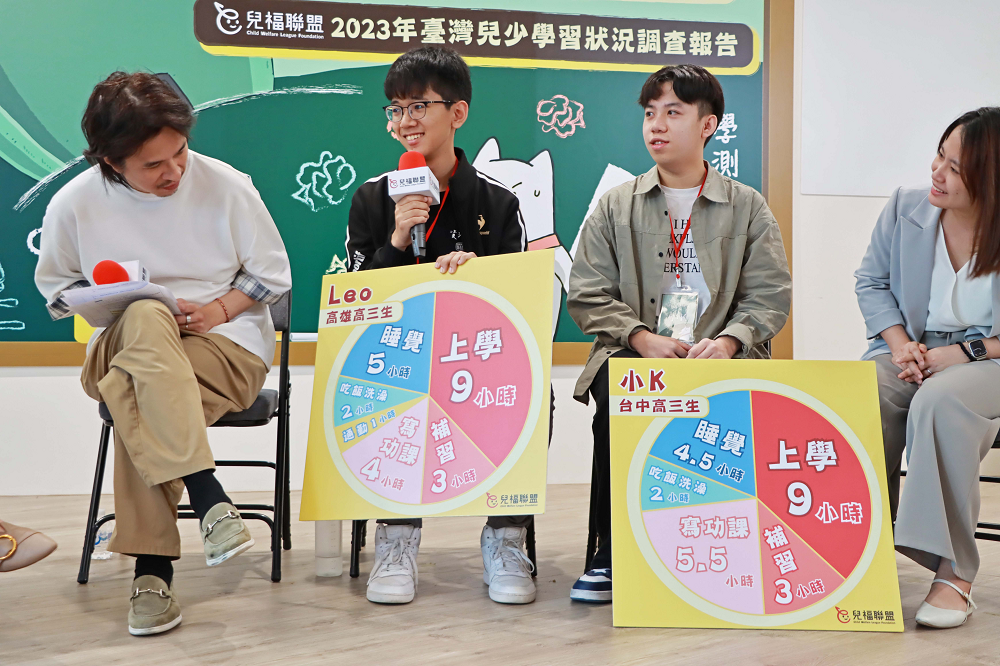
Forty percent of parents tend to compare academic performances, while sixty percent of students worry about not being able to measure up to others.
Comparisons in schools and grades, coupled with parental expectations and personal demands, create an atmosphere of stress and fatigue in the learning process.
Tracing back the sources of psychological stress, it is found that as students perceive higher expectations from parents regarding academics, the level of learning fatigue increases. Forty percent of students express that their parents compare their academic performance with others (39.9%). Over one-fifth believe that their parents prioritize academic performance over other aspects of life (22.1%). Furthermore, 15.7% of students admit to experiencing verbal abuse from parents due to poor academic performance, including being called stupid, useless, or criticized for poor exam results. Additionally, 5.1% of students report being physically punished for their academic performance. When a child associates their feelings about academics with painful and humiliating memories, a natural fear and resistance towards learning may develop.
In addition to parental expectations, students' self-imposed demands are also a significant source of stress. A substantial sixty percent of children and adolescents feel that their grades often fall short of their own expectations (66.6%) and worry about lagging behind their peers in academic performance (60.7%). More than half (53.9%) believe that they typically spend more time studying than others. Alarmingly, almost half (48.6%) admit that poor exam or assignment results can affect their mood for an entire day. This indicates that the values of 'diploma-centric' and 'emphasis on academic advancement' have not reversed with the progress of the education reform era. Instead, these values seem deeply ingrained in the hearts of every child.
Eighty percent of high school students feel significant stress, and nearly sixty percent feel more bewildered about future education and career planning.
The spirit of the 108 curriculum aspired to overturn the traditional rote-learning education model, shifting from a passive learning approach to one where students take the lead, restoring autonomy in learning to the students. However, despite the well-intentioned objectives, the implementation of the 108 curriculum has become a new source of learning stress for students. The survey reveals that over 82.6% of high school students feel significant stress under the 108 curriculum. The primary source of stress is identified as 'creating a learning portfolio,' accounting for 76.1%. Following this, students express stress related to 'planning independent learning' (47.9%) and 'career exploration and future aspirations' (40.1%).
Offering diverse elective courses and creating learning portfolios aim to help students better understand themselves, explore multiple interests, and make adaptive choices. However, this survey reveals that still close to sixty percent (56.9%) of students feel bewildered about future education and career planning. This indicates that the majority of students are uncertain about which academic or career path to choose, highlighting the need for more support or guidance channels to assist them in decision-making. It's noteworthy that 12.1% of students have shared their thoughts about the future with adults, but their parents do not respect their future academic or career plans. These students, whose thoughts about the future are not respected by their parents, experience significantly higher levels of learning fatigue than other students.
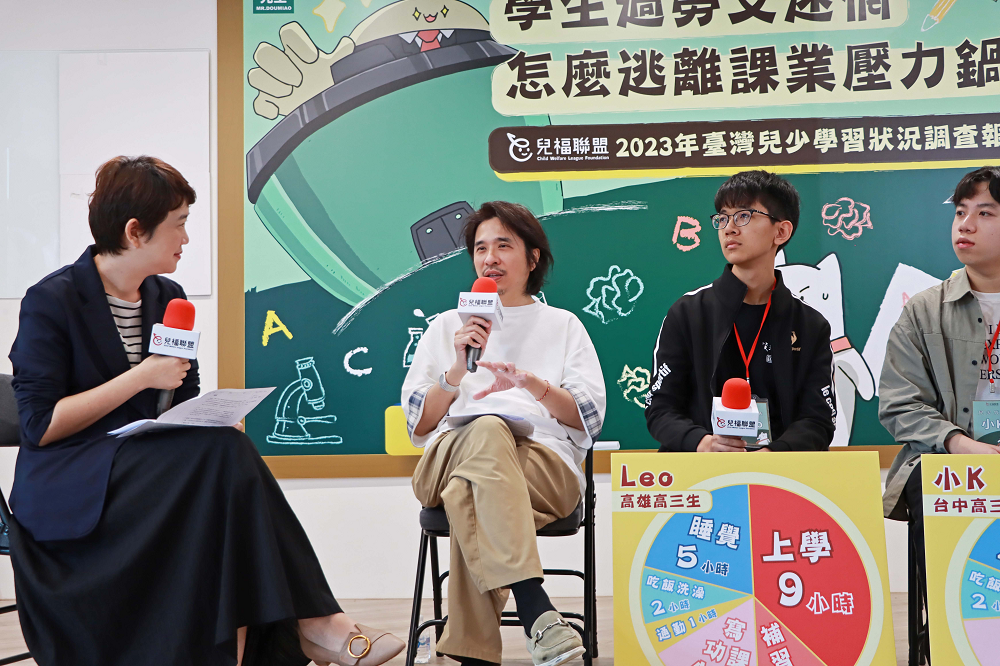
CWLF advocates for the importance of mental and physical health, emphasizing that a sound body and mind are essential for students to navigate the boundless sea of learning. CWLF urges the implementation of comprehensive counseling mechanisms to facilitate adaptive learning and talent development.
Professor Yeh Ping-Cheng, invited as the ambassador to advocate for a shift in traditional educational thinking, explained that Taiwan's current educational policies align with the educational goals of developed countries worldwide. The aim is to equip the next generation with the ability to confront the rapidly changing trends in the future. However, due to a lack of understanding among teachers and parents in Taiwan, these policies often lead to increased anxiety, transforming into stress and fatigue for children. Some students may resort to additional tutoring to enhance their capabilities, hoping it will provide clarity about their future aspirations. Professor Yeh believes that if students are putting in effort at school but still feel inadequate or confused, seeking additional tutoring is a reasonable approach. However, he emphasizes the need for careful consideration when parents automatically assume that tutoring is synonymous with benefiting their children. Such preconceived notions about tutoring may contribute to excessive fatigue and heightened stress among students.
As for exploring career options and the stress of academic advancement, Counseling Psychologist Deng Shan-Ting suggests that career exploration is not something that can be accomplished in just one or two semesters. It requires a long period of observation and trial and error. She encourages students not to put too much pressure on themselves. Regarding stress relief, Deng recommends structuring study sessions in cycles of one hour with 15-10 minute breaks. During these breaks, students can engage in leisure activities based on their interests. She advises minimizing phone usage to avoid continuous exposure to a large amount of information, allowing the brain to rest effectively.
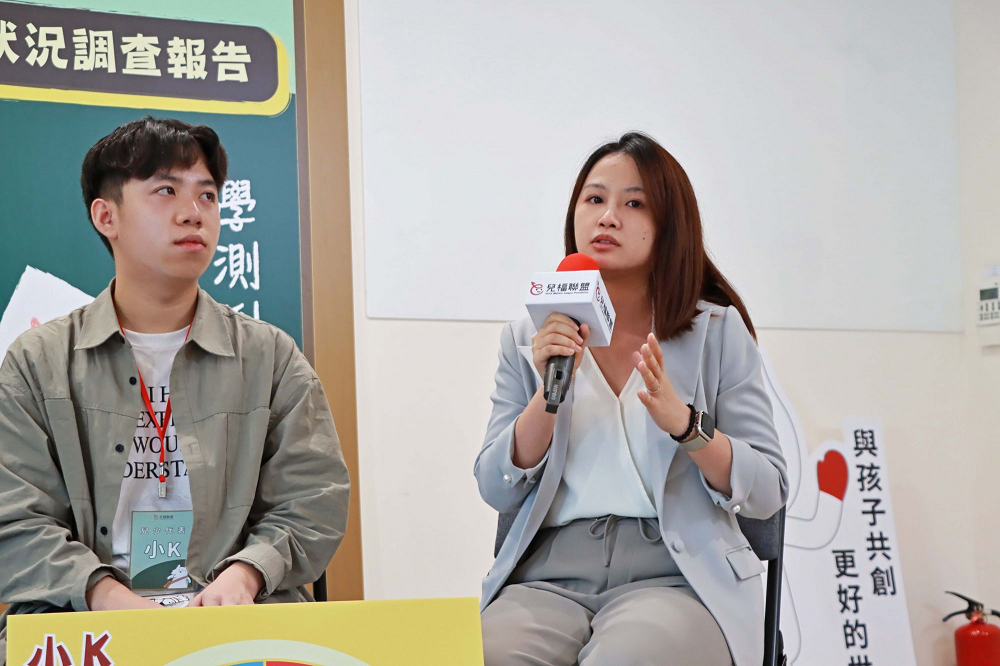
1. Pay More Attention to Students' Physical and Mental Health
Parents should closely observe their children's daily routines and overall well-being, especially in urban areas and for children with excessive tutoring hours. When signs of physical or mental distress appear in children, offering care, support, and seeking professional assistance are essential steps.
2. Ensure Adequate Sleep and Encourage the Development of Exercise Habits
It is recommended that parents schedule outdoor family activities and encourage their children to develop exercise habits. This can effectively reduce learning stress and break free from the control of phones.
3. Establish a Comprehensive Career Counseling Mechanism to Alleviate Students' Anxiety about the Future
When students are not only subjected to traditional rote learning but are also expected to explore their interests autonomously, as per the inadequacies of the current system, it is clear that the formulation of the 108 curriculum has not effectively addressed the real needs and challenges faced by students. The relevant authorities should reconsider the existing guidance programs and mechanisms, allocating more counseling resources to better meet students' needs.
